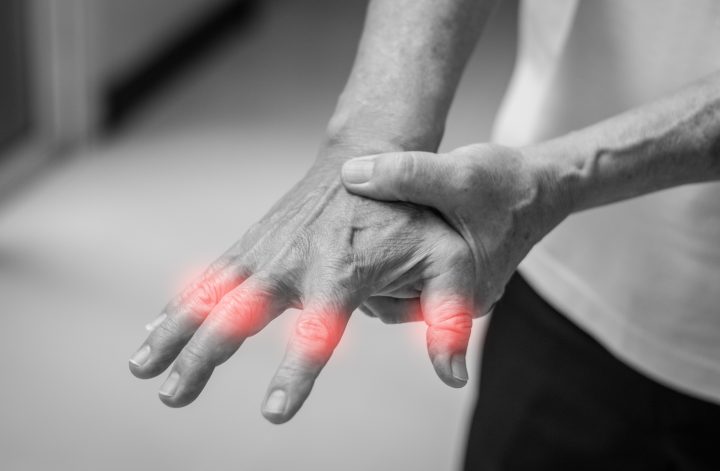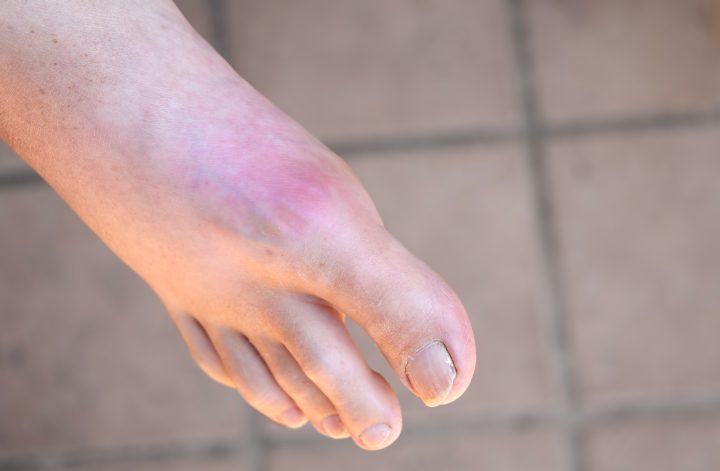Acute joint pain, swelling, and redness can be caused by the accumulation of uric acids in the blood. Gout has been associated historically with royalty, the wealthy, and the popes. Gout affects all people who have had easy access to high-quality food. It is the most severe form of inflammatory arthritis and can be fatal. Research has shown that this condition is resurgent due to increased longevity, hypertension, and changes in diet. Here you can learn more about the Gout diet: Gout Diet
What causes Gout?
Gout is a condition where the kidneys can’t eliminate the compound at the required rate. Normal levels of single acids are between 2.4 to 6 mg/dL in women and 3.4–7 mg/dL in men.
Uric acid buildup can lead to:
- Deposits of uric acids crystals in the joints. This is mainly found in the big toe but also in the arch, foot, ankles and heels.
- Deposits that form lumps under the skin (tophi)
- Kidney stones
Uric acid dissolves in blood and passes through the kidneys before being expelled in the urine. There are some situations where the body produces more uric acids than it needs. In these cases, the kidneys are not able to eliminate the excess.
Acute gout is a condition that affects only one joint. Chronic gout is when multiple episodes of pain and inflammation are experienced and more than one joint is affected. There are several natural treatments for Gout: Home Remedies For Gout
What are the Symptoms?
If you are a male and have a history of this condition, or if you drink a lot of alcohol, have a transplanted kidney, or are overweight, your chances of getting gouty include the following:
As people age, the possibility of an increase in uric acid buildup is greater. As stated by the U.S. National Library of Health, there are other diseases that may increase your risk of developing it. These include renal pathology, diabetes and anemias as well as leukemia, kidney disease, and other types of blood cancers. In this Channel you can learn more about Gout: Gout Home Remedy
Hyperuricemia is a condition where there is an elevated level of uric acid within the blood. However, this does not always mean that you will get gout. These are the most common signs of inflammatory arthritis.
- Pain.
- Swelling.
- Redness.
- Heat.
- Joint stiffness
- Occasionally, fever.
Gout attacks usually start with severe, pulsating and oppressive pain in the joints. This pain usually occurs suddenly at night and is often more severe when touched. The attack can disappear within a few days and return sometimes with a longer duration. A new attack is usually within 6-12 months. Here you can learn more about all the symptoms: Gout Symptoms
Gout Treatment and Remedies
Nonsteroidal anti-inflammatory drug (NSAIDs) are used to treat gout attacks. These include codeine, naproxen, codeine, stronger pain relievers like codeine, corticosteroids such as prednisone, and colchicine. Colchicine reduces inflammation, pain, swelling, and pain. Cold compresses can be used to relieve pain. The best natural supplement against gout can be purchased here: Gout Treatment
These medications usually relieve the pain within 12 hours. However, your doctor may recommend a medication to lower uric acid levels. This medication is often prescribed to patients who have suffered multiple attacks within the same year, are extremely intense, have tophi or suffer from nephropathy, uric acid kidney stone stones, or who have severe tophi.
It is also advisable to change your lifestyle to prevent new imbalances in the body’s elimination of uric acids.
- Reduce alcohol consumption, animal protein (red meat) and sugary drinks.
- Losing weight.
- Exercise daily.
- Choose healthy foods such as fruits, vegetables, legumes and whole grains, as well as dairy products.
- Get plenty of water.



